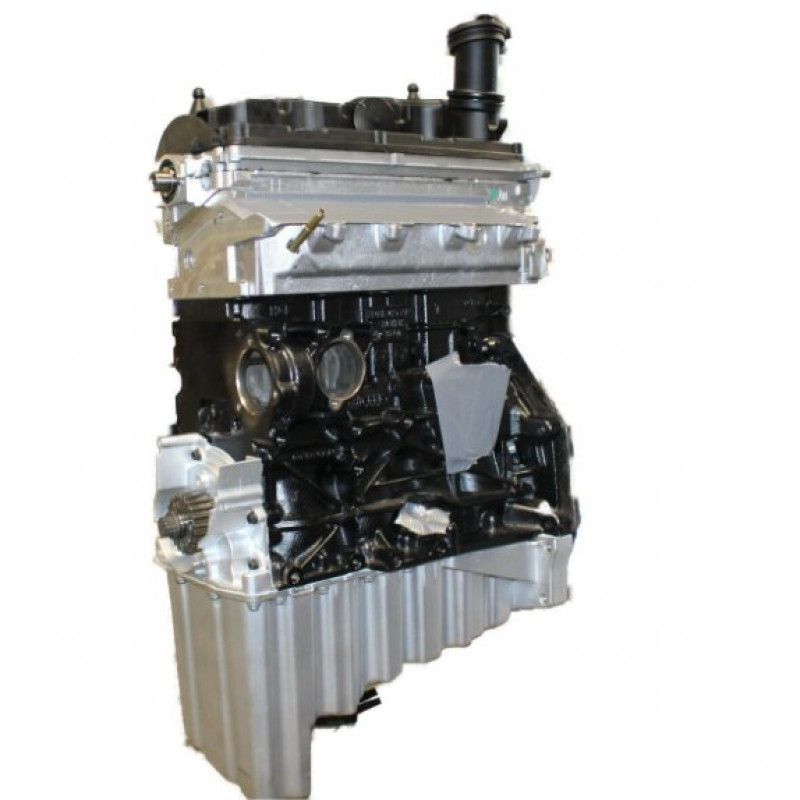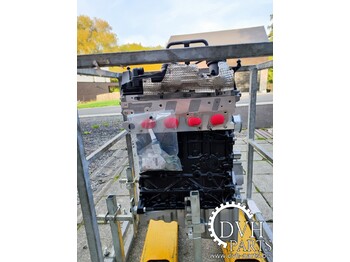Navigating the Process of Engine Choice: Trick Factors to Take Into Account
The process of engine choice is a complex undertaking that requires cautious assessment of numerous critical factors to guarantee positioning with functional objectives. Efficiency needs, gas efficiency, and monetary restraints are just the start; considerations around ecological effect and upkeep support play a critical function in the decision-making framework. Comprehending exactly how each of these aspects communicates can substantially affect the effectiveness and long life of your financial investment. The details of each variable might not be immediately obvious, triggering further exam of exactly how to purposefully navigate this facility landscape.
Performance Demands
When selecting an engine, it is critical to establish clear efficiency demands that straighten with the intended application. Efficiency requirements encompass a variety of factors, consisting of power output, torque attributes, and responsiveness, which should be customized to the particular needs of the car or equipment concerned.
Power result, usually gauged in horsepower, identifies the engine's capacity to propel a lorry or perform a task successfully. Torque, on the various other hand, is necessary for applications calling for strong preliminary velocity or hefty training abilities. An understanding of the functional environment is likewise crucial; as an example, engines developed for off-road applications might call for various performance attributes contrasted to those meant for freeway use.
In addition, take into consideration the functional tons and task cycle, as these variables influence the engine's long life and integrity. In high-load situations, a durable engine style may be required to prevent early wear or failing.
Gas Effectiveness Considerations
While efficiency demands are important, fuel performance is similarly important in the engine choice process, as it straight affects operating costs and ecological sustainability. Fuel-efficient engines consume less gas per system of job performed, which not only decreases overall expenditure but additionally minimizes greenhouse gas discharges. As organizations increasingly prioritize sustainability, picking an engine that optimizes gas efficiency can boost business duty and compliance with ecological regulations.
When examining gas performance, it is important to consider the engine's style and modern technology - amarok engine for sale. Developments such as turbocharging, direct fuel shot, and crossbreed systems can significantly enhance fuel economy. Furthermore, recognizing the operating conditions and task cycles of the engine application is essential; engines might perform in different ways under varying rates and lots
Moreover, manufacturers often provide fuel usage data that can be made use of to contrast numerous engine alternatives. In recap, fuel efficiency is a multi-faceted consideration that calls for detailed evaluation throughout the engine choice process.
Budget and Cost Evaluation
Budget and cost evaluation functions as an essential component in the engine selection process, affecting both temporary investments and long-lasting operational expenditures. When assessing potential engines, it is necessary to think about not just the initial acquisition rate however also the total price of ownership, which incorporates installation, maintenance, gas usage, and potential downtime.
A comprehensive evaluation ought to start with the upfront costs connected with the engine, consisting of needed modifications or supplementary devices. However, concentrating solely on preliminary expenses may cause misguided choices. Assessing operating prices over the engine's lifespan is similarly vital, as extra expensive engines may use superior fuel effectiveness or reduced maintenance requirements, inevitably resulting in cost savings.

Ecological Impact Aspects
Understanding environmental influence aspects is necessary in the engine option process, as sustainability considerations have ended up being increasingly essential for both regulative compliance and corporate responsibility. Organizations should assess the discharges produced by various engine types, including co2, nitrogen oxides, particle matter, and unburned hydrocarbons. These emissions contribute significantly to air contamination and environment adjustment, demanding a careful analysis of the engine's environmental footprint.
Additionally, fuel kind plays an important role in environmental impact. Engines powered by sustainable energy sources, such as biofuels or hydrogen, often tend to have a lower ecological impact contrasted to standard nonrenewable fuel sources. Additionally, the lifecycle analysis of the engine, from production through operation to disposal, need to be taken into consideration to recognize the full range of its environmental implications.

Maintenance and Assistance Options
When picking an engine, the availability of upkeep and support choices is a crucial factor to consider that can substantially impact functional efficiency and long life. Comprehensive maintenance prepares ensure that the engine runs at peak efficiency and reduces unanticipated downtimes. It is important to examine the manufacturer's assistance network, including the schedule of qualified professionals and service click to investigate facilities.
Assessing the availability of spare components is also vital. A reputable supply chain for parts can decrease preparations for fixings and maintenance, thus improving total productivity. Furthermore, think about the convenience of obtaining technical paperwork and training sources, which are vital for guaranteeing that personnel are well-equipped to take why not try this out care of regular and emergency circumstances.
One more important aspect is the service warranty and service agreements provided by the maker. These contracts can supply tranquility of mind and financial protection against unexpected problems. Eventually, an aggressive approach to maintenance and assistance not just extends the life of the engine but likewise adds to the total success of the procedure. Mindful factor to consider of these facets will certainly bring about notified decisions that align with operational goals and budget plans.
Verdict
To conclude, the procedure of engine option necessitates a comprehensive evaluation of various essential variables, consisting of efficiency needs, gas effectiveness, budget plan restrictions, environmental impact, and upkeep support. By diligently evaluating these aspects, educated decisions can be made that align with functional objectives and sustainability goals. Ultimately, a tactical technique to engine choice will certainly ensure optimum performance and longevity while dealing with financial and environmental factors to consider properly.
While efficiency demands are important, gas effectiveness is equally vital in the engine selection process, as it directly impacts operating costs and environmental sustainability. As organizations progressively prioritize sustainability, selecting an engine that maximizes gas effectiveness can enhance company obligation and conformity with environmental policies.
Additionally, understanding the operating problems and task cycles of the engine application is vital; engines may carry out in different ways under differing speeds and loads. (amarok engine for sale)
Examining operating expenses over the engine's life expectancy is equally important, as extra expensive engines might supply remarkable gas effectiveness or decreased upkeep demands, inevitably leading to set you back savings.
In final thought, the procedure of engine selection see here now demands a detailed evaluation of numerous essential variables, consisting of efficiency demands, fuel performance, budget constraints, ecological effect, and upkeep assistance. - amarok engine for sale